#south african queer youth
Text
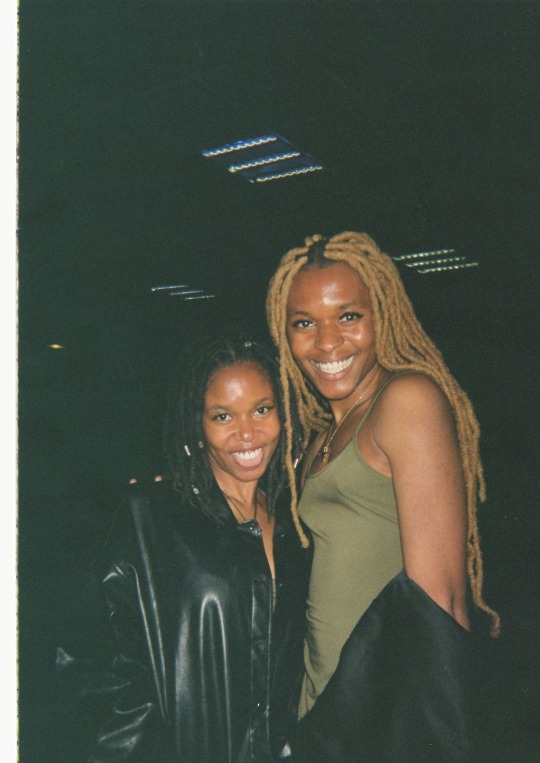
Family values 🤎
#me#sisters#family#film photography#vogue nights joburg#VNJ#johannessburg#Johannesburg night life#lgbt#beautiful#south africa#black queer youth#black queer south africa#south african queer youth#aesthetics#queer south africa#transfem#trans women are beautiful#trans woman
7 notes
·
View notes
Text
Punk History Resources: Vol. 1
This is a compilation of resources found and recommended by various alternative bloggers, each of whom are credited for their contributions. This started because I was getting SO MANY asks about resources such as videos, books, and websites to use to learn about punk history. Admittedly, my own list isn't that long, so I thought it was best to reach out to some others and share their knowledge with everyone. So thank you again to everyone who helped out with this!!
@raggedyfink @lovintheaesthetic @punk-patches @my-chemical-ratz
YOUTUBE:
Punk/Goth Docs Playlist on Youtube (77 Videos) (raggedyfink)
1991 The Year Punk broke (lovintheaesthetic)
She's Real (Worse Than Queer) (lovintheaesthetic)
Don't Need You, The Herstory of Riot Grrrl (lovintheaesthetic)
The Long Queer History of Punk (lovintheaesthetic)
The very Black History of Punk Music (lovintheaesthetic)
Punk's Not Dead (lovintheaesthetic)
BOOKS:
Phantoms the Rise of La Deathrock (raggedyfink)
Too Tough to Love by Roxy Ramone (raggedyfink)
I Slept With Joey Ramone by Mickey Leigh (raggedyfink)
Please Kill Me, The Uncensored Oral History of Punk Rock (punk-patches & lovintheaesthetic)
Encyclopedia of Punk (punk-patches)
The Day the Country Died: A History of Anarcho-Punk, 1980-1984 (my-chemical-ratz)
The Heebie-Jeebies at CBGB's: A Secret History of Jewish Punk (my-chemical-ratz)
Sellout: The Major-Label Feeding Frenzy That Swept Punk, Emo, and Hardcore (lovintheaesthetic & my-chemical-ratz)
Tranny: Confessions of Punk Rock's Most Infamous Anarchist Sellout (my-chemical-ratz)
Punk Rock: An Oral History (my-chemical-ratz)
Girls to the Front: The True Story of the Riot Grrrl Revolution (my-chemical-ratz)
Queercore: Queer Punk Media Subculture (my-chemical-ratz)
Queercore: How to Punk a Revolution: An Oral History (my-chemical-ratz)
Spider-Punk: Banned in D.C.(this doesnt have anything to do with history but i love spider punk so) (my-chemical-ratz)
MOVIES / DOCUMENTARIES:
The Punk Singer (punk-patches)
Queercore: How to Punk a Revolution (punk-patches)
Punk's Not Dead (punk-patches)
Pansy Division: Life in a Gay Rock Band (punk-patches)
Queercore: How To Punk a Revolution (my-chemical-ratz)
Afropunk (my-chemical-ratz)
Punk in Africa (my-chemical-ratz)
A Band Called Death (my-chemical-ratz)) (link courtesy of @wrench-p, but is unavailable to watch in the US))
ARTICLES:
(some of these are found on JSTOR, but you can sign up for a free 100 articles per month)
Muslim Punk in an Alt-Right Era (my-chemical-ratz)
A History of Punk (my-chemical-ratz)
Jews, Punk and the Holocaust: From the Velvet Underground to the Ramones: The Jewish-American Story (my-chemical-ratz)
What is Punk and Why Did It Scare People So Much? (my-chemical-ratz)
An Account of a South African Punk Rock Music Collection (my-chemical-ratz)
Queer As Punk: A Guide To LGBTQIA+ Punk (my-chemical-ratz)
Did Punk Matter?: Analyzing the Practices of a Youth Subculture During the 1980s (my-chemical-ratz)
ZINES:
(some may not be *about* history, but they’re a huge part of it!)
Punk Planet archive (my-chemical-ratz & safety-pin-punk)
Queer Zine archive (I personally like the anon boy collection haha) (my-chemical-ratz)
Archive.org in general has a lot of zines :) (my-chemical-ratz)
ETC:
(These aren’t about punk history itself but could be helpful in learning about the politics that go with being punk)
A History of Punk from 1976-78: A Free Online Course from the University of Reading (safety-pin-punk)
Punk History Reading List (safety-pin-punk)
Essays about socialism (my-chemical-ratz)
Leftism 101 (my-chemical-ratz)
Rights as an American protester (my-chemical-ratz)
Social justice classes (I’m really excited to go through these!!) (my-chemical-ratz)
Stamped (my-chemical-ratz)
How To Be An Anti-Racist (my-chemical-ratz)
Nice Racism: How Progressive White People Perpetuate Racial Harm (my-chemical-ratz)
I would love to make a Vol. 2 post at some point in the future, so if you have resources and want to share, PLEASE message me!!
#punk 101#punk culture#punk history#punk#punx#punk resources#resource list#friends!!!#making this post legit made tumblr crash on my desktop soo uhhhh let me know if anything is fucked up please!
1K notes
·
View notes
Text
Retelling of overused historical periods (part 1)
There are some historical periods that are so much used in stories to become boring, like, there's no more something interesting about them, right?
Wrong
Lucky (or unfortunately, depends on the point of view) stories tend to focus only on some aspects of history, leaving out all the rest.
But "the rest" is so fascinating!
Here are some prompts on how you can make overused historical times interesting again.
Ancient Rome
Especially last years of Republican period and first century of Imperial period
Tell the stories of women. This is going to be a recurrent advice but here I mean it with all my heart: talk about women, properly. Roman women between I century bc and II century ad had to face a lot and did it with great force and pride: they fought to be educated (and some of them started to work in law), some of them became writers (often uncredited, like Sulpicia), they had to face a law that punished sexual behavior outside of marriage (even for unmarried girls) and fought against them united, they obtained divorce (and divorced women started to be common after I century bc) and in imperial periods they obtained more civil rights. Some historians say that what they did was a feminist movement ante litteram. If you want a nice reality based prompt: when Augustus imposed a law stating that every woman (married and unmarried) that had sex with a person that wasn't her husband would be punished- apart from prostitutes, lots aristocrat women decided to go all together to sing up as prostitutes (even if they weren't) as a protest. They won.
Greek slaves. Romans had different levels of slavery and usually slaves from Greece were classified familia urbana: they had to work in the family of their owner/patron but had greater respect than other kind of slaves. They had to manage the family patrimony, educate the young members of the family (greek culture was fashionable) and help their patron at work. Usually after years of work they became libertus: freed people.
People who decided to put otium (making of art, literature, poetry and philosophy) before negotium (working in law or in commerce). It wasn't a lot encouraged and young people who did so were the "wasted youth" or the unproductive. Culture was seen as good only if it had a second mean like propaganda. Art for art's sake wasn't acceptable, and lots of young people fought for that. If you want a reality based prompt: Catullus and neoteros.
Bisexuality. Lots of historical fictions forget how much bisexuality was common in ancient rome. It wasn't seen as completely good (there were a lot of prejudices) but many of important figures were bisexuals (I'm looking at you, Cesar). Take this as an invite to make queer representation.
Victorian London
Talk about women (this is going to be a leitmotiv) in a different way. On one hand we have the Victorian idea of women (very oppressive) and on the other we have the rise of feminism with its different ramifications. Highlight this opposition and talk about women who had the courage to stand out.
Poor people and working class. Usually Victorian based fiction is about aristocrats or rich borgueis class but poor people had a more interesting story: the protests, police brutality, the rising of socialism, strikes, the first trade unions and the fight to make them legal, chartism and other attempts to be important in politics.
Queer people. Homosexuality (and other queer identities) was forbidden and punished with prison. Still, queer culture in the Victorian England is huge. This aspect can't go forgotten in history and fiction.
Immigrants. According to Wikipedia
there were about 2 339 000 immigrants in Victorian Britain, mostly from Ireland, Belgium, Germany and lots of them were Jews, but there were lots of immigrants from South Asia, China, the African continent and West India too. Telling their stories would be original and much needed.
The Golden Age of Piracy
You know what I'm going to suggest, right? Women! Yeah you saw it coming. Women pirates were a thing and we need to talk about them more often. Lots of them used male names and identities in order to be safe and revealed themselves only later (and often when killing their enemies as a way to state "you've been defeated by a woman, you sexist idiot") . Sometimes they were desperate and looking for a way of surviving that wasn't prostitution but I really hope that their story won't be only filled with trauma and suffering: they were badass, powerful and free. Celebrate them. Anyway, some of them could have been transmen and transmasc people and it's really important to not put a cisheteronormative gaze on them. Queer and trans pirates were a thing as well as women pirates.
Matelogate and queerness in pirates. Matelogate was similar to modern civil unions and stipulated between men: they promised to share everything and had legal (in the law pirates recognized) protection as a couple, and benefits too. Matelogate wasn't exclusively an agreement between lovers but it has been reported that almost all pirates who decided to matelogate had a romantic and/or sexual bond with the people they decided to commit to. I'm saying people because apparently (I still have to do deep researches about it) polyamorous pirates were a thing too.
Black pirates. Seriously, lots of people think that pirates were only white but actually there were plenty of nonwhite pirates and especially black pirates. Usually they chose piracy as a way to escape slavery but as I said with women pirates before: even of history is filled with pain, try to not focus only on trauma and portrait your characters in a non triggering way. Empower them as a way of giving them the justice history denied.
As you can see in this first part of my "retelling history posts" acknowledging parts of history that have been erased in mainstream storytellings is a powerful tool for creativity but it's especially a way of protecting part of history from the process of erasing who didn't have privileges.
#story prompt#writing#writing prompt#prompts#historical periods#historical fiction#history#historical prompts#women in history#queer history#black history#immigrant history#ancient rome#victorian london#19th century#piracy#golden age of piracy#queer pirates#women pirates#black pirates#roman literature#retelling history#history facts#feminism
311 notes
·
View notes
Note
'Wild Women Don't Get The Blues' - Nathan
Oh this is a Shoshana fic for sure-- one that details her identity as a black intersex queer woman (raised as a boy) having to survive the deep south in her youth in the 1880s-90s, until she finds a way to prosper in the 1920s/30s amidst the Great Depression! and all of it would be set to the backdrop of proto-Blues and Blues music! I imagine Shoshana grew up around a lot of that kind of music, ya know? Especially since, if you look at the timeline, most likely her own parents had just escaped slavery. So she's probably part of the first generation of free African-Americans. Still disenfranchised and lacking a lot of opportunities, but still free. And Blues music (or proto-Blues) was developed in that kind of culture. I would pattern her coming-of-age to how Blues music develops to the recorded genre it ends up as in the 1920s/30s.
2 notes
·
View notes
Note
Hi Cat 🐱 and Mouse 🐭 , Can I please ask for some female faceclaims around 30-40 with red or dark hair that could play a nymph/goddess who is described to be very beautiful with youthful, elegant looks, please? Thank you so much in advance <3 :)
Yetide Badaki (1981) Yoruba Nigerian - is bisexual.
Bridget Regan (1982)
Lotte Verbeek (1982)
Yaya DaCosta (1982) African-American, one quarter Afro-Montserratian, one eighth Afro-Brazilian.
Alexandra Breckenridge (1982)
Lupita Nyong'o (1983) Luo Kenyan Mexican.
Florence Faivre (1983) Thai / French.
Gugu Mbatha-Raw (1983) Zulu South African / English.
Elçin Sangu (1985) Turkish.
Mary Wiseman (1985) - is queer.
Deborah Ann Woll (1985)
Rosa Salazar (1985) Peruvian / German, English, Scottish, Northern Irish.
Sarah Power (1985)
Miyazaki Aoi (1985) Japanese.
Jodie Turner-Smith (1986) Afro Jamaican.
Àstrid Bergès-Frisbey (1986)
Diane Guerrero (1986) Colombian.
Da'Vine Joy Randolph (1986) African-American.
Florence Welch (1986)
Nicola Coughlan (1987)
Shannon Thornton (1987) African-American.
Aidy Bryant (1987)
Ashley Blaine Featherson (1987) African-American.
Yoghurt Nattasha Bunprachom (1987) Thai.
Sarah Hay (1987)
Anna Diop (1988) Senegalese.
Cleopatra Coleman (1987) Afro Jamaican / Scottish, possibly other.
Jane Levy (1989) Ashkenazi Jewish / English, some Irish and Scottish.
Richa Moorjani (1989) Indian.
Logan Browning (1989) African-American / European.
Ming Xi (1989) Chinese.
Jenna Thiam (1990) Armenian, Belgian / Senegalese, English, French.
Başak Gümülcinelioğlu (1991) Turkish.
Su Kutlu (1991) Turkish.
Alina Kovalenko (1992)
Adwoa Aboah (1992) Ghanaian / English.
Here you go!
3 notes
·
View notes
Note
I'm guessing this is an American blog, right? That explains the immature approach to LGBT issues. Seriously, do people like you guys even know how badly the neopronouns are hurting gay and trans people in other parts of the world? How far back the US's hyper-liberal crap has set back our rights in OTHER countries? Please consider someone other than yourself for 2 seconds, thanks. My South African trans self certainly doesn't approve.
Why the fuck is it always OTHER TRANS AND GAY PEOPLE who are to blame for transphobic/homophobic peoples existences and not, you know, the transphobic/homophobic people.
Do you assume you are the only on who bleeds? Who suffers? Who lives in danger or fear? I live in Texas, even the liberal areas are rife with hate crimes and police brutality, especially for people of colour (LIKE ME). Do you think that this mogai headcanon blog from 2017 is some major political figure in the american queer community? I was in high school, eating government paid for lunches and going to a youth group after school for dinner when i made this blog, homie.
Im fucking sorry the mean homophobes blamed tumblr and its silly pronouns when they got caught commiting hate crimes, i really am, but telling strangers on the internet that the way they relste to and express their genders is hurting YOU isnt the way to fix it. We've got our own shit to deal with, thank you.
This sint even fucking victim blaming, at this point, you're yelling at the other guy with a bullet in his gut because his is lavender and that means its Special™️. This is breaking your neighbors windows because he got a new car when youre both still living in a slum. This is the fucking picture of counter revolutionary infighting.
I hold no delusion that i am not in a privileged position compared to a lot of other trans people in my own state, let alone the world, but i refuse to allow this fucking farse of an argument in my ask box.
-mod hanni
8 notes
·
View notes
Text
The Pink Line: Journeys Across the World's Queer Frontiers
Mark Gevisser
Publisher: Farrar, Straus, and Giroux
Genre: queer theory, politics
Year: 2020
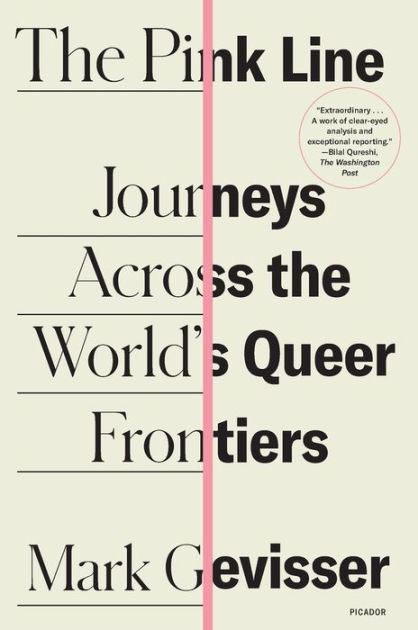
I just finished The Pink Line: Journeys Across the World's Queer Frontiers by Mark Gevisser, and I am absolutely blown away. I picked this book randomly because I was waiting for Wyatt's recommendation "Gender Madness" to come in from the library.
This book should be essential reading for all queer people, especially people in the US. Gevisser is a white gay South African who set out to find the "pink lines" of queer rights. He starts close to home, following the story of a trans Malawian refugee in South Africa, a gay Ugandan refugee in Nairobi, lesbians in Cairo, a trans woman fighting for custody in Moscow, the trans youth of Michigan, lesbians in Mexico and the communities of kothis in rural India. He talks to a gay Israeli dating a Palestinian, interviews genderqueer Filipinos—the scope of this book is truly remarkable.
This book has such an impactful insight on queerness around the world, and has fundamentally changed me. Although it's not the point of the book, Gevisser really highlighted for me how America and the West is colonizing queer spaces by forcing the LGBT label onto communities that already had indigenous varying gender expressions and how in the African nations, both Christian organizations and western LGBT organizations are each harming the community through their respective agendas.
Gevisser is highly aware of his status as a white man, and although gay, from South Africa where gay marriage has been legal since 2005 (it really blew my mind to discover just how far behind the US is on a lot of these issues), and approaches his work with a level of compassion that I find comforting. He removes himself from the narrative as much as possible, only commenting to reflect on how his own identity might be shading his opinions and experiences, but the way in which he describes the people in this book shows the extent of his care.
Hands down the most important and impactful queer theory book I’ve ever read
~Update~
I really need to sleep but I’m never gonna shut up about this
Also it was published in 2020 and he interviewed them for 5 years so it’s super current. Like 2015-2020
~Update 2~
Jk I’m back my mind is racing
Another really poignant underlying theme for me is that universally, all of the refugees felt one thing: they wanted to go home. They wanted, more than anything, the ability to be themselves in their own culture. The refugees of Canada, the US, the Netherlands, Nigeria, while grateful they were safe, without exception every single one wanted to go home. And it really challenged the narrative for me that people always want to come to the West. I never believed the conservative talking point about people coming to the US to take your job and steal your livelihood but this pushed back on the assumption I didn’t even realize I had that the West was at the forefront of the “pink line” as Gevisser puts it. While the US does take a prominent role in the conversation (he talks about the bathroom bills and sports conversations started in the US around trans youth) and how the LGBT label became de facto in a lot of places because of the prominence of American media, the West is such a non-entity in most of these peoples lives. They don’t want to go anywhere they want to stay where they are and be accepted.
storygraph | bookshop.org | local houston
★★★★★★★★★ essential reading stars. I listened to it but I just bought a copy for my personal library.
#book review#queer theory#queer history#the pink line#mark gevisser#required reading#political science#favorite#profound#reference#author of color#author african#featured#2020#farrar straus and giroux#queer#nonfiction#macmillan
3 notes
·
View notes
Text
Blog_2_Moonlight
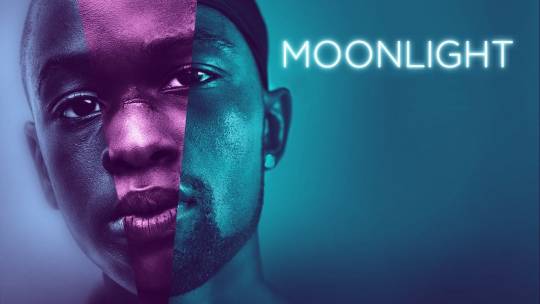
"Moonlight," directed by Barry Jenkins, is a groundbreaking film that delves into the intricacies of racial and sexual identity within the African American community. Set in the streets of Miami, the movie chronicles the life of Chiron, a young black man navigating his journey from childhood to adulthood while grappling with his sexuality. Through three distinct chapters of Chiron's life, portrayed by different actors, "Moonlight" captures the complexities of growing up black and queer in a society that often imposes rigid stereotypes and expectations.
Chiron's journey in "Moonlight" is profoundly shaped by his race, as he navigates complex societal expectations and racial stereotypes imposed upon young black men. From a young age, Chiron is confronted with the harsh realities of systemic racism and structural inequality, which permeate every aspect of his life. The film depicts how Chiron grapples with the burden of racial stigma and the pressure to conform to narrow definitions of black masculinity.
Throughout the film, Chiron faces numerous obstacles stemming from his race, including discrimination, police brutality, and economic hardship. These experiences not only shape his perceptions of himself but also profoundly impact his ability to navigate the world around him. From being labeled as "soft" and "different" in his youth to being targeted by law enforcement as a teenager, Chiron's racial identity is constantly scrutinized and policed by society.
I reminds me of something I read outside of class specifically, the film echoes bell hooks' critique of hegemonic masculinity and its detrimental effects on men of color in the book “The Will to Change: Men, Masculinity and Love”. These expectations of masculinity dictate how men, particularly men of color like Chiron, should behave and present themselves. They often pressure individuals to conform to rigid gender norms, while suppressing their vulnerabilities and emotions in favor of projecting an image of toughness and stoicism. This can have detrimental effects on men's mental and emotional well-being, as we see in the move, as they may feel compelled to suppress or deny aspects of themselves that do not align with hegemonic ideals.
In “regards to in class comparisons, “Moonlight" shares thematic parallels with Jacob Lawrence's "Migration Series," particularly in its exploration of the African American experience and the quest for belonging. Both the film and Lawrence's artwork delve into the struggles faced by individuals navigating new environments and societal structures, whether it's Chiron's journey through the streets of Miami or the migration of African Americans from the rural South to the urban North. Through their respective mediums, both "Moonlight" and the "Migration Series" highlight the resilience of marginalized communities in the face of adversity.
Hooks, B. (2004). The Will to Change: Men, Masculinity, and Love. Atria Books.
Jacob Lawrence: The Migration Series. (n.d.). Lawrencemigration.phillipscollection.org.
0 notes
Photo

Within Without
I don’t know. I’m yet to discover why I find solitude so alluring presently. I can’t imagine a better chance to experience oneself without limitations. Could you conceive anything better than doing nothing but just being. Being present and mindful and by yourself. Just within without. Yes. within without. I like that.
Model: Zahir Elias
Clothing by YIM SA
Photography: Me
#Youth Condition#Black and White#black and white photography#Beautiful Black Boys#black men#natural black hair#afro#South African#south african photographers#South African photography#south africa#basotho hat#men in corsets#men in skirts#doing nothing#men in nature#deserty#black youth#queer culture#androgynous
10 notes
·
View notes
Text
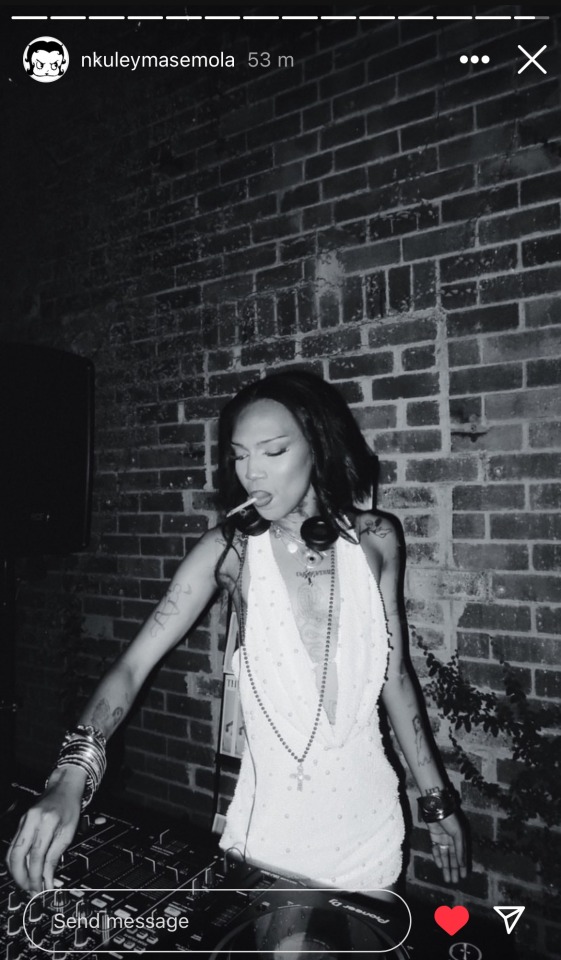
#nkuley masemola#instagram story#instagram#aesthetics#instagram stories#model#south africa#beautiful#south african queer youth#dj
3 notes
·
View notes
Text
["Working with queer and trans/gender-non-conforming youth in the Deep South, I hear stories of state and personal violence from a wide range of people. There was the 16-year-old, black self-identified “stud” in detention after her mom referred her to family court for bringing girls to the house. Then there was the incarcerated white 16-year-old trans youth from a rural town of 642, whose access to transgender healthcare resided in the hands of one juvenile judge. I was told of a black trans-feminine youth in New Orleans who was threatened with contempt for wearing feminine clothing to her court hearing. There was also the 12-year-old boy, perceived to be gay by his mother, who was brought into judge’s chambers without his attorney and questioned about being gay before he was sentenced for contempt after being found “ungovernable.” There was the public defender who refused to represent his gay client because the lawyer believed him to be “sick” and in need of the “services” offered by prison. And there was the black lesbian arrested over and over again for any crime where witnesses described the perpetrator as an African American “boyish-looking” girl.
Nowhere is the literal regulation and policing of gender and sexuality, particularly of low-income queer and trans youth of color, so apparent than in juvenile courts and in the juvenile justice system in the South. Understanding how the juvenile justice system operates and impacts queer and trans/gender-non-conforming youth requires a critical look at the history of youth rights and the inception of juvenile court. During the Industrial Revolution (1800–1840s), poor youth worked in factories, received no public education and were often arrested for the crime of poverty.[1] These youth, some as young as 7 years old, were incarcerated with adults and placed in prisons until they were 21. Inspired by the belief that young people who committed crimes could be rehabilitated and shocked by the horrific treatment of white children in adult prisons, the juvenile justice system was developed. This new system was based on parens patriae, the idea that the role of the system was to place youth in the state’s custody when their parents were unable to care for them. Later, in 1899, the first juvenile court was established, designed to “cure” children and provide treatments for them rather than sentences. Still rooted in a Puritan ideology, white young women were often sent to institutions “to protect them from sexual immorality.”
Black children, however, who were viewed as incapable of rehabilitation, continued to be sent to adult prisons or were sent to racially segregated institutions. In Louisiana, black youth were sent to work the fields at Angola State Penitentiary, a former slave plantation, until 1948 when the State Industrial School for Colored Youth opened. The facilities were not desegregated until the United States District Court ordered desegregation of juvenile facilities in 1969. More recently, the goal of juvenile justice reform has been to keep youth in their homes and in their communities whenever possible while providing appropriate treatment services to youth and their families. However, with the juvenile justice system’s intent to provide “treatment” to young people, many queer/trans youth inherit the ideology that they are “wrong” or in need of “curing,” as evidenced by their stories.
As sexual and gender transgressions have been deemed both illegal and pathological, queer and trans youth, who are some of the most vulnerable to “treatments,” are not only subjected to incarceration but also to harassment by staff, conversion therapy, and physical violence. Moreover, with the juvenile justice system often housed under the direct authority of state correctional systems and composed of youth referred directly from state police departments, it should not be surprising that young people locked up in the state juvenile system, 80 percent of whom are black in Louisiana, are often actually destroyed by the very system that was created to intervene. Worse than just providing damaging outcomes for youth once they are incarcerated, this rehabilitative system funnels queer and trans/gender-non-conforming youth into the front doors of the system. Non-accepting parents and guardians can refer their children to family court for arbitrary and subjective behaviors, such as being “ungovernable.” Police can bring youth in for status offenses, offenses for which adults cannot be charged, which often become contributing factors to the criminalization of youth. Charges can range from truancy to curfew violations to running away from home. Like in the adult criminal justice system, queer and trans youth can be profiled by the police and brought in for survival crimes like prostitution or theft. Youth may be referred for self-defense arising from conflict with hostile family members or public displays of affection in schools that selectively enforce policies only against queer and trans youth."]
Wesley Ware, from Rounding Up The Homosexuals: The Impact of Juvenile Court on Queer and Trans/Gender-Non-Conforming Youth, from Captive Genders: Trans Embodiment and the Prison Industrial Complex, edited by Eric A. Stanley and Nat Smith, AK Press, 2011
3K notes
·
View notes
Text
13 Black Owned Bookstores You Should Check Out
Every Friday, we’re spotlighting Black owned bookstores where you can buy some of our favorite titles! We want to spotlight these stores not just during Black History Month, but all year round - so here are 13 stores that you should check out when looking for your next book!
The Brain Lair
Located in South Bend, IN, The Brain Lair offers a wide selection of titles that feature people all over the world, with an emphasis on people of color, people with disabilities, and people who identify as LGBTQ+.
Books and Crannies
Books and Crannies is a Black-woman owned independent bookstore, located in Martinsville, VA that features fiction and non-fiction accompanied by a selection of children's books and a wide range of titles.
Underground Books
Underground Books opened in the summer of 2003 and is the literary hub of Oak Park, California. It is a nonprofit under St. HOPE and is a gathering place for neighborhood residents. Underground books hosts book signings by local and national authors, lectures, poetry events, children's story time, radio shows and more!
The Dock Bookshop
The Dock Bookshop is the largest African American owned full service bookstore in Texas and the Southwest. Their mission is to inspire, inform, and entertain customers through books and book-related events.
Eso Won Books
Located in Los Angeles, California, Eso Won Books is one of the largest African American Bookstores in the country.
The Little Boho Bookshop
Nestled downtown in the main street of Broadway, Bayonne, New Jersey, The Little Boho Bookshop opened its doors on July 31, 2017. Born with a focus on kids, pre-teens, and young adults content, the store now includes the most current best sellers.
Loyalty Bookstores
Loyalty was founded by Hannah Oliver Depp, a Black and Queer Bookseller who has spent her career working to diversify the book industry. Located in Washington, DC with a stand-along shop in downtown Silver Spring, MD, Loyalty aims to be the Mid-Atlantic's neighborhood spot for wonderful books and unique stationery, gifts, and programming.
Brave and Kind Books
Brave and Kind Books is a thoughtfully curated neighborhood kids bookshop that offers a unique selection of inclusive, classic, artful stories, creative workshops, story clubs, and special gifts. Located in Decatur, Georgia.
Da Book Joint
Da Book Joint is a Black woman owned business born on the southside of Chicago committed to literary growth and the positive engagement of the youth.
Sankofa Video Books & Café
Named after the internationally acclaimed film, Sankofa Video, Books & Café was founded in 1998 by filmmaking couple, Haile and Shirkiana Gerima. Located in Washinton, DC, the store specializes in videos and books about people of African descent around the world.
Sister’s Uptown Bookstore
Sister's Uptown Bookstore is the only Black owned bookstore and cultural center in Manhattan for 16 years.
EyeSeeMe
EyeSeeMe African American Children's Bookstore was created in order to help bridge the cultural divide, so that African American children can benefit from exposure to literature that respectfully mirrors themselves, their culture and their families. Located in University City, Missouri, EyeSeeMe is the only children's bookstore devoted exclusively to promoting positive African American Images and African Amreican History while advocating for Academic Excellence.
Best Richardson African Diaspora Literature & Culture Museum
Best Richardson African Diaspora Literature & Culture Museum is a non-profit Independent, Veteran and Woman-owned museum, bookstore, and gift shop. Located in Tampa, FL the museum provides customers with educational artifacts and information on African Diaspora literary and cultural history.
#I read YA#Amplifying Black Voices#Share Black Stories#Black History Month#Black owned bookstores#booklr#books#book list
305 notes
·
View notes
Link
[NOTE: we changed the bullets to numbers in order to help with readability of this relatively long post. there is no other purpose for the list numbering.]
Redistribute resources to support Black trans liberation and survival! Split a donation to all the orgs listed on this page OR allocate specific amounts to individual groups. Then be sure to share this page once you're done.
**All funds donated go directly to the groups listed via ActBlue. Feel free to reach out to them if you have any questions**
Last week, many people shared that it was hard to track down a centralized place to find a list of specifically Black trans groups. This page is part of an effort to create an easier way for people to find and donate specifically to Black trans work and people right now. We know that this list is not complete, and it will be continually updated. If you have questions or would like to add an org in your area to this page, please email: [email protected].
The groups listed in this first section only accept donations through PayPal, CashApp, or Venmo. Please support their important work by clicking over to their websites here:
Trans Sistas of Color Project Detroit: Exists to uplift, impact and influence that lives and welfare of transgender women of color in Detroit.
En-Poder-Arte (Colombia) Founded by an Afro-Colombian trans woman and other trans women of color. A few months ago, they launched a community house, which provides safe housing to Black trans women and trans women of color.
F2L Relief Fund: Provides commissary support (and legal representation & financial assistance) for incarcerated LGBTQ and Two-Spirit POC in NY State.
Middle Tennessee Black and Indigenous Support Fund: A community fund for Black and Indigenous queer and trans folks living and participating in rural Middle TN, with a goal to foster wealth redistribution in its larger community, direct the funds to Black and Indigenous community members, and build the leadership of Black and Indigenous community members.
Tournament Haus Fund: Mutual Aid fund for protestors and Trans/NonBinary BIPOC in the ballroom scene in Portland/Tacoma/Seattle.
TAKE Birmingham: A peer support group for trans women of color to come together and share their narratives. Also organizing around discrimination in the workplace, housing advocacy, & support for sex workers.
Black Excellence Collective Transport for Black NYC LGBTQ+ Protestors: Raising funds to provide safe transport for Black LGBTQ+ Protestors.
Kween Culture: Provides programming towards social and cultural empowerment of transgender women of color.
Black Trans Travel Fund : A mutual aid project developed to provide Black transgender women with the financial resources to self-determine safer alternatives to travel, so they feel less likely to experience verbal harassment or physical harm.
Heaux History Project: A documentary series and archival project exploring Black and Brown erotic labor history and the fight for sex workers’ rights.
Homeless Black Trans Women Fund: Supports Black Trans women that live in Atlanta and are sex workers and/or homeless.
Reproductive Justice Access Collective (ReJAC): A New Orleans network that aims to share information, resources, ideas, and human power to create and implement projects in our community that operate within the reproductive justice framework.
Rainbow Sunrise Mapambazuko/RSM (Democratic Republic of Congo): Fights for the Promotion of the rights and equality of LGBTQ people in DRC and is today facing this covid-19 crisis which further weakens Black LGBTQ people and more particularly transgender Black women.
Compiled direct donation links for individual Black Trans folks A compilation of direct donation links to Black trans people, including GoFundMes and CashApp handles. Email address on page to add to this list.
Below are the orgs you can support through the split donation form (on the right, if you're on a computer, or below if you're on a mobile device):
For The Gworls: This fund provides assistance to Black trans folks around travel to and from medical facilities, and co-pay assistance for prescriptions and (virtual) office visits.
Black Trans Fund: The first national fund in the country dedicated to uplifting and resourcing Black trans social justice leaders. BTF seeks to address the lack of funding for Black trans communities in the U.S. through direct grantmaking, capacity building support, and funder organizing to transform philanthropy.
Nationz Foundation: Provides education and information related to HIV prevention and overall health and wellness, while inspiring the community to take responsibility for their health while working towards a more inclusive Central Virginia for LGBTQIA+ identified individuals.
Trans Justice Funding Project: Supports grassroots trans justice groups run by and for trans people, focusing on organizing around racism, economic injustice, transmisogyny, ableism, immigration, and incarceration.
Third Wave Fund: An activist fund led by and for women of color, intersex, queer, and trans people under 35 years of age to resource the political power, well-being, and self determination of communities of color and low-income communities. Includes rapid response grantmaking, multi-year unrestricted grants, and the Sex Worker Giving Circle.
Unique Womens Coalition: The first Los Angeles based supportive organization for and by Transgender people of color, committed to fostering the next generation of black trans leadership from within community through mentorship, scholarship, and community care engagement work.
Black Trans Women Inc.: A national nonprofit organization committed to providing the trans-feminine community with programs and resources to help inspire individual growth and contributions to the greater good of society to meet its mission of uplifting the voice, heart and soul of black transwomen.
Black Trans Men Inc.: The first national nonprofit social advocacy organization with a specific focus on empowering African American transgender men by addressing multi-layered issues of injustice faced at the intersections of racial, sexual orientation, and gender identities.
SisTers/Brothers PGH: A transgender drop-in space, resource provider and shelter transitioning program based in Pittsburgh, PA.
Love Me Unlimited for Life: A catalyst that helps our transgender community members reach their goals and fulfill their potential through advocacy and outreach activities.
My Sistah's House Memphis: Designed to bring about social change within the Trans Community in Memphis, by providing a safe meeting space and living spaces for those who are most vulnerable in the LGBTQ+ community.
Black LGBTQIA Migrant Project: Builds and centers the power of Black LGBTQIA+ migrants through community-building, political education, direct services, and organizing across borders. BLMP is providing cash assistance to Black LGBTQ+ migrants and first generation people dealing with the impact of COVID-19.
Taja’s Coalition at St. James Infirmary: Empowers their community in navigating housing, medical services, legal services, and the workplace, as well as regularly training agencies in the SF Bay Area.
Marsha P. Johnson Institute: Helps employ black trans people, build more strategic campaigns, launch winning initiatives, and interrupt the people who are standing in the way of more being possible in the world for BLACK Trans people, and all people.
Black Trans Protestors Emergency Fund organized by Black Trans Femme in the Arts Collective : Supports Black trans protestors with resources like bail and medical care.
Black & Pink Bail Fund: A national prison abolitionist organization dedicated to dismantling the criminal punishment system and the harms caused to LGBTQ+ people and people living with HIV/AIDS who are affected by the system through advocacy, support, and organizing.
Black Visions Collective (MN): Black Visions Collective centers their work in healing and transformative justice principles and develops Minnesota’s emerging Black leadership, creating the conditions for long term success and transformation.
SNaPCo: A Black, trans-led, broad-based collaborative to restore an Atlanta where every person has the opportunity to grow and thrive without facing unfair barriers, especially from the criminal legal system.
Brave Space Alliance: Created to fill a gap in the organizing of and services to trans and gender-nonconforming people on the South and West Sides of Chicago, where very few LGBTQ advocacy networks exist.
Okra Project/Tony McDade and Nina Pop Mental Health Fund: Provides Black Trans people with quality mental health & therapy. Also addresses food security in Black trans communities.
House of GG: A nonprofit, founded by legendary trans activist Miss Major Griffin-Gracy, that is raising money to build a permanent home where Transgender people can come, feel safe, and be part of a growing network of Southern trans people who are working for social justice.
TGI Justice Project: TGI Justice Project is a group of transgender, gender variant and intersex people -- inside and outside of prisons, jails and detention centers -- challenging and ending human rights abuses committed against TGI people in California prisons, jails, detention centers and beyond.
Trans Women of Color Collective: TWOCC exists to create revolutionary change by uplifting the narratives, leadership, and lived experience of trans people of color.
Youth Breakout: BreakOUT! seeks to end the criminalization of lesbian, gay, bisexual, transgender, and questioning (LGBTQ) youth to build a safer and more just New Orleans, organizing with youth ages 13-25 who are directly impacted by the criminal justice system.
Translash: A trans-led project uses the power of individual stories to help save trans lives, shifting the cultural understanding of what it means to be transgender, especially during a time of social backlash, to foster inclusion and decrease anti-trans hostility.
TRANScending Barriers: A trans-led trans-issue focused organization whose mission is to empower the transgender and gender non-conforming community in Georgia through community organizing with leadership building, advocacy, and direct services.
My Sistah's House: A trans-led nonprofit providing first hand experience as well as field research to create a one-stop shop for finding doctors, social groups and safe spaces for the trans community, providing emergency shelter, access to sexual health services, and social services.
Dem Bois: A national organization with the mission to provide charitable economical aid for female to male, FTM, trans-masculine identified person(s) of color ages twenty-one years old and older for them to obtain chest reconstruction surgery, and or genital reassignment surgery in order to help them on their journey to live a more fulfilled physical, mental, and self-authentic life.
G.L.I.T.S: Approaches the health and rights crises faced by transgender sex workers holistically using harm reduction, human rights principles, economic and social justice, along with a commitment to empowerment and pride in finding solutions from our own community.
Emergency Release Fund: Aims to ensure that no trans person at risk in New York City jails remains in detention before trial; if cash bail is set for a trans person in New York City and no bars to release are in place, bail will be paid by the Emergency Release Fund.
HEARD: Helping Educate to Advance the Rights of Deaf Communities: Supports deaf, hard of hearing, deafblind, deafdisabled, and disabled (“deaf/disabled”) people at every stage of the criminal legal system process, up to and including during and after incarceration.
Black Trans Advocacy Coalition COVID-19 Community Response Grant: Works daily to end discrimination and inequities faced in health, employment, housing and education to improve the lived experience of transgender people.
Princess Janae Place: Provides referrals to housing for chronically homeless LGBTQ adults in the New York Tri-state area, with direct emphasis on Trans/GNC people of color.
The Transgender District: Aims to stabilize and economically empower the transgender community through ownership of homes, businesses, historic and cultural sites, and safe community spaces.
Assata’s Daughters: A Black woman-led, young person-directed organization rooted in the Black Radical Tradition. AD organizes young Black people in Chicago by providing them with political education, leadership development, mentorship, and revolutionary services.
Collective Action for Safe Spaces: A grassroots organization that uses comprehensive, community-based solutions through an intersectional lens to eliminate public gendered harassment and assault in the DC area.
The Knights and Orchids Society (TKO): Strives to build the power of the TLGB community for African Americans throughout rural areas in Alabama & across the south, to obtain our dream of justice and equality through group economics, education, leadership development, and organizing cultural work.
The Outlaw Project: Based on the principles of intersectionality to prioritize the leadership of people of color, transgender women, gender non-binary and migrants for sex worker rights in Phoenix, AZ. Ensuring our rights and health as a first step will ensure the rights and health of all sex workers.
WeCare TN: Supports trans women of color in Memphis, TN, through education, and empowerment, with the goal to ensure that transwomen of color have the same equity and quality of life as envisioned.
HEARD (Helping Educate to Advance the Rights of Deaf Communities): Supports deaf, hard of hearing, deafblind, deafdisabled, and disabled (“deaf/disabled”) people at every stage of the criminal legal system process, up to and including during and after incarceration.
Community Ele'te (Richmond, VA) To establish unity, provide safe sex awareness and education, linkage to resources, emergency housing assistance, and empower the community to make positive lifestyle decisions.
TAJA's Coalition: An organization dedicated to ending violence against Black Trans women and Trans women of color based in San Francisco
Black Trans Task Force: (BTTF) is an intersectional, multi-generational project of community building, research, and political action addressing the crisis of violence against Black Trans people in the Seattle-Tacoma area.
The Transgender District: Aims to stabilize and economically empower the transgender community through ownership of homes, businesses, historic and cultural sites, and safe community spaces.
Trans Sistas of Color Project Detroit: exists to uplift, impact and influence that lives and welfare of transgender women of color in Detroit.
Black Trans Media (Brooklyn, NY): We are #blacktranseverything storytellers, organizers, poets, healers, filmmakers, facilitators here to confront racism and transphobia trans people of the diaspora committed to decolonizing media and community education
Garden of Peace, Inc.(Pittsburgh, PA): Centers black trans & queer youth, elevates and empowers the narratives and lived experiences of black youth and their caretakers, and guides revolutionary spaces of healing and truth through art, education, and mentorship.
House of Pentacles (Durham, NC): HOP is a Film Training Program and Production House designed to launch Black trans youth (ages 18-35) into the film industry and tell stories woven at the intersection of being Black and Trans. We have a simple mission: to train the next generation of Black trans storytellers and filmmakers, to leverage our brand to get Black trans filmmakers paid projects in their communities, and to pay Black trans trainees to work on HOP projects that further the stories of Black trans people globally.
Minnesota Transgender Health Coalition (Minneapolis, MN): is committed to improving health care access and the quality of health care received by trans and gender non-conforming people through education, resources, and advocacy.
RARE Productions (Minneapolis, MN): Arts and entertainment media production company for LGBTQ people of color that promotes, produces, and co-creates opportunities and events utilizing innovative artistic methods and strategies.
Baltimore Safe Haven: providing opportunities for a higher quality of life for transgender people in Baltimore City living in survival mode.
Transgender Emergency Fund of Massachusetts: recently helped organize a Trans Resistance Vigil and March through Boston, in place of the Boston Pride Parade that was cancelled due to COVID-19.
Semillas: In Borikén/Puerto Rico, our trans, gender non-conforming and queer communities are facing many obstacles to our survival, and not only due to Mariá.
Street Youth Rise Up: Our campaign is to change the way Chicago sees and treats its homeless home free and street based youth who do what they have to do to survive.
Trans(forming): A membership-based organization led by trans men, intersex, gender non-conforming people of color, to provide resources and all around transitional support.
81 notes
·
View notes
Photo
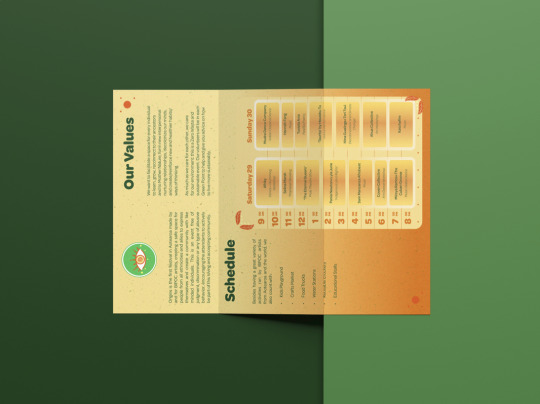
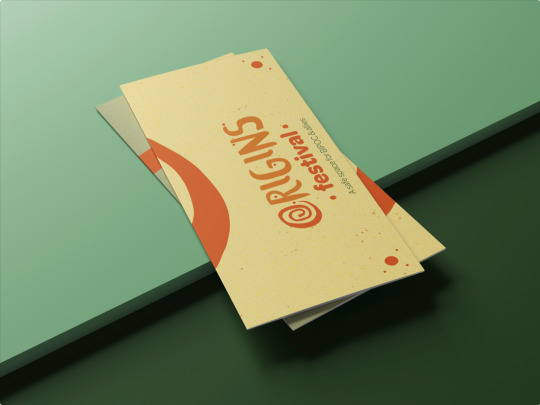
Brochure
The brochure is the last thing I worked on since it was going to take a lot longer than the other assets.
For the way of folding it, I decided to make a trifold brochure but horizontal, because I wanted the person looking at ti to see the whole thing at once when checking, rather than small individual parts.
I first sketched on a piece of paper to figure out what would go where:
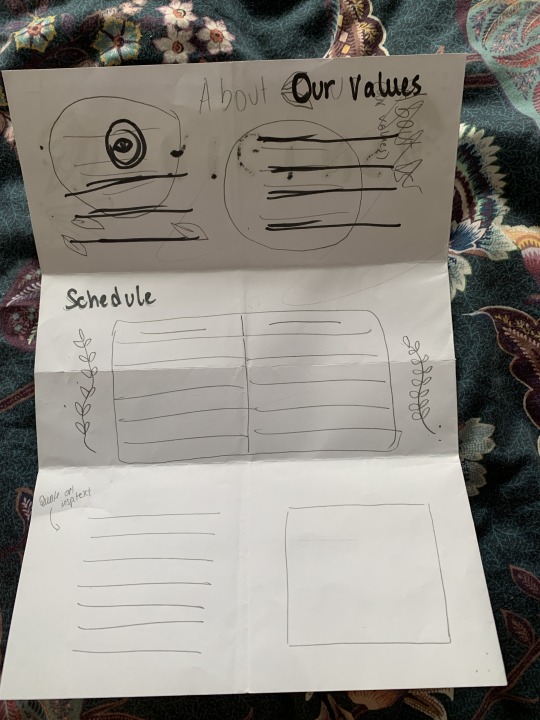
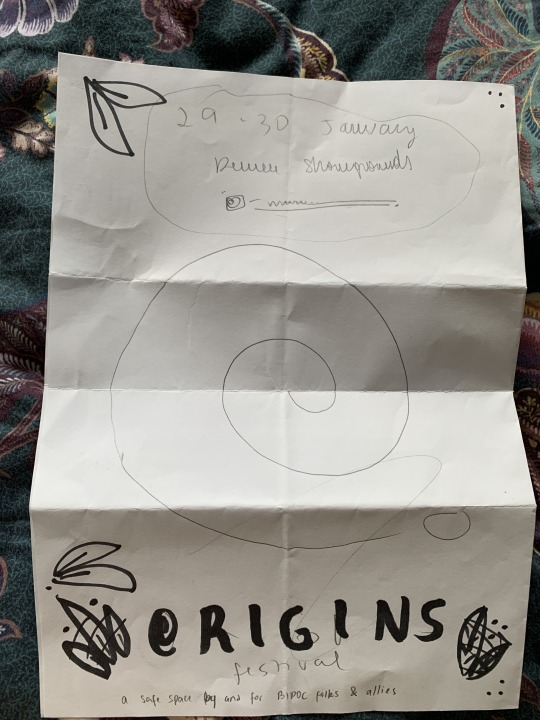

After figuring out the structure, I started brainstorming on who would be part of the festival. I wanted to use real names of BIPOC artists that do things related to decolonialisation.
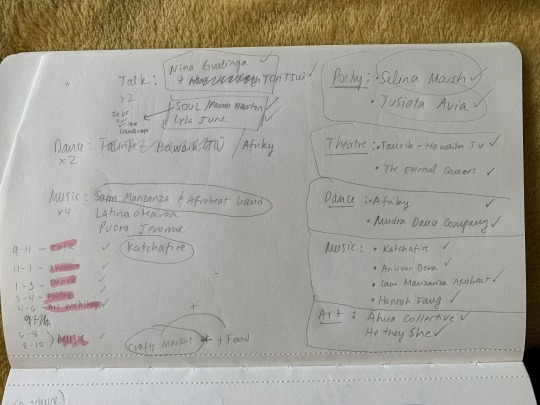
In this sketch I wrote down the names of the bands/collectives/people that I would like to have in the festival, and also assigned time slots that were realistic.
Talks:
- Nina Gualinga: is an Ecuadorian environmental and indigenous rights activist. She is part of the Kichwa-speaking community and has spent most of her life advocating for better environmental protection of the Ecuadorian Amazon and the inhabitant wildlife as well as the people who are dependent on this environment.
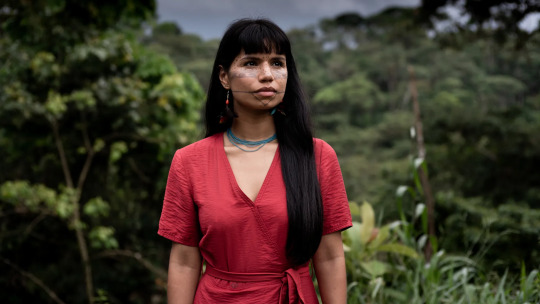
- Tori Tsui: is a Bristol-based intersectional climate justice activist and organiser, speaker, writer and mental health advocate from Hong Kong and New Zealand.
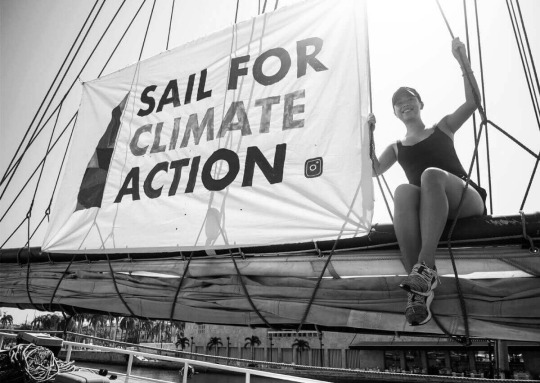
- Pania Newton: is a New Zealand lawyer and activist for Māori land rights; she is a member of the Ngāpuhi, Waikato, Ngāti Mahuta and Ngāti Maniapoto tribes.In 2016, Newton alongside her five cousins, and other supporters, formed the group Save Our Unique Landscape (SOUL) to protest the development of land at Ihumātao in south Auckland.
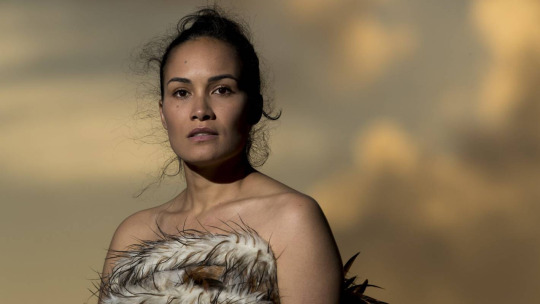
- Lyla June:
Lyla June Johnston is an Indigenous public speaker, artist, scholar and community organizer of Diné (Navajo), Tsétsêhéstâhese (Cheyenne) and European lineages from Taos, New Mexico.Her messages focus on Indigenous rights, supporting youth, traditional land stewardship practices and healing inter-generational and inter-cultural trauma.
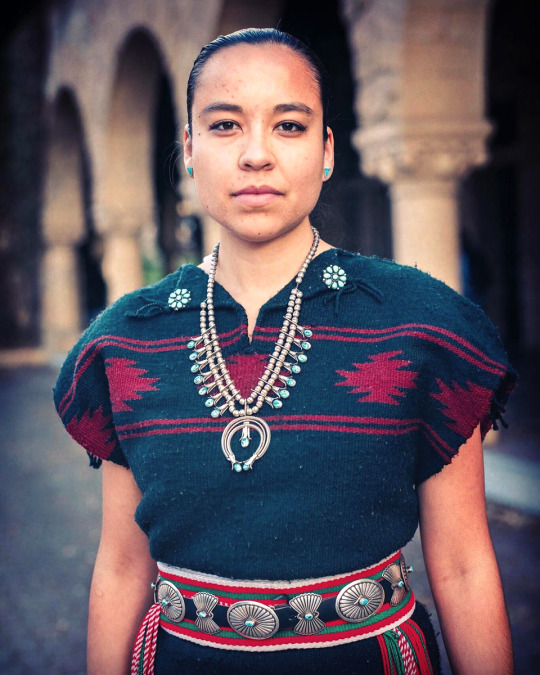
Music:
- Katchafire: Katchafire are an all Maori New Zealand roots reggae band from Hamilton, New Zealand.
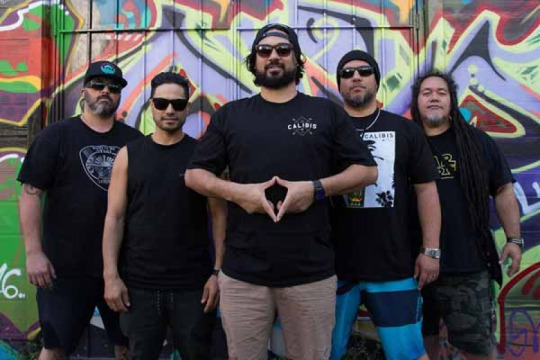
- Sam Manzanza & Afrobeat: Sam Manzanza has performed his infectious brand of authentic African music to audiences all over the globe. His knowledge of traditional rhythms is honed by years spent with the national ballet of Zaire ( DR Congo ) under Ray Lema.Sam is the man who popularised traditional and modern Africa music in New Zealand.
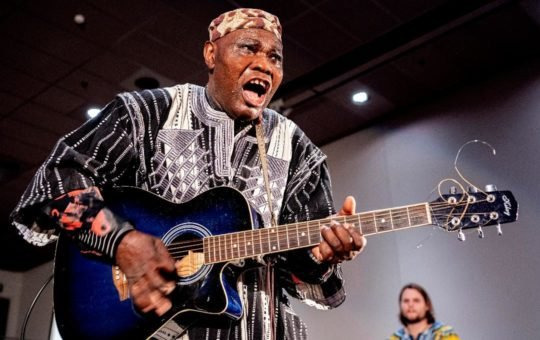
- Hannah Fang: Chinese/Kiwi violinist
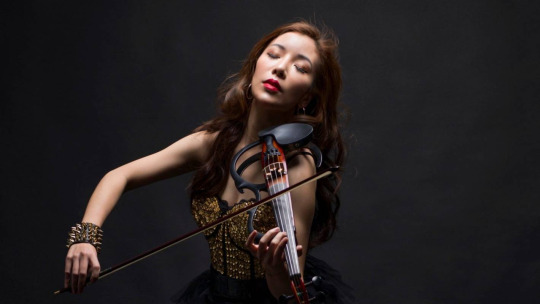
Poetry:
- Selina MArsh: Dr Selina Tusitala Marsh is an Auckland-based Pacific poet and scholar of Samoan, Tuvaluan, English, Scottish and French descent.
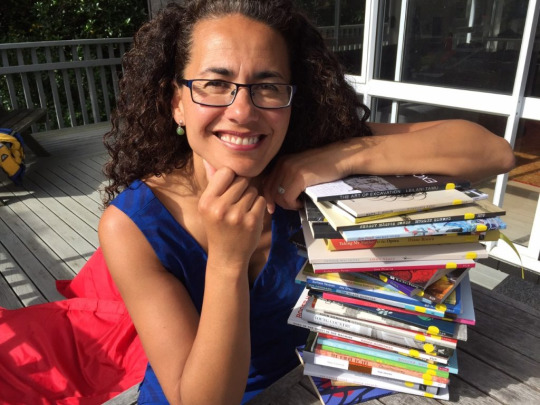
- Tusiata Avia: is of Samoan and Palagi descent. Born and raised in Christchurch, she has spent the last decade travelling the globe. In 2004 she published her first collection of poetry, Wild Dogs Under My Skirt (Wellington: VUP). She is also a performance poet.
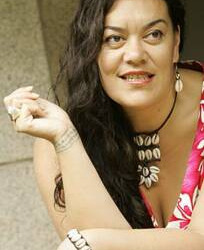
Dance:
- Afriky: an afro dance and drums performance group. Camila and her team have facilitated workshops and performances at multiple festivals and events throughout New Zealand.

- Mudra Dance Company: Mudra Dance Company is the premiere Indian Classical Dance Company of New Zealand. Led by the dance luminary Vivek Kinra, this company uses the dance style of Bharata-Natyam as the mode of expression to create a spectacle of rhythm, colour, music and motion.

Theatre:
- Hawaiki TŪ presents 'TAURITE' a special performance in collaboration with Tāmaki Makaurau Kapa Haka Group, Te Manu Huia.
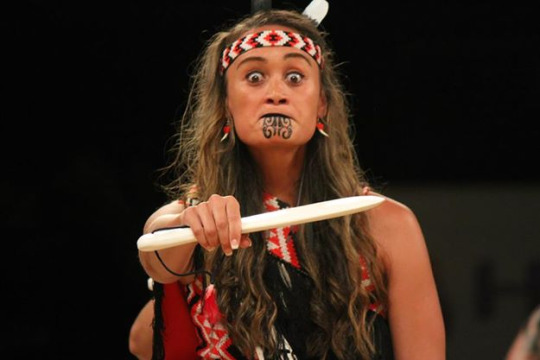
- The Eternal Queers: A fictional story of four real-life rainbow activists set in an afterlife - in 2079 to be exact - is the idea behind what's believed to be Aotearoa's first all Queer People Of Colour play. It's the second play by Black Afro-Caribbean lesbian playwright Estelle Chout.

Art:
- Ahua Collective: Āhua Collective is a new platform committed to empowering QTBIPOC (Queer, Trans, Black/Indigenous/People of Colour) artists and decolonising our creative future.
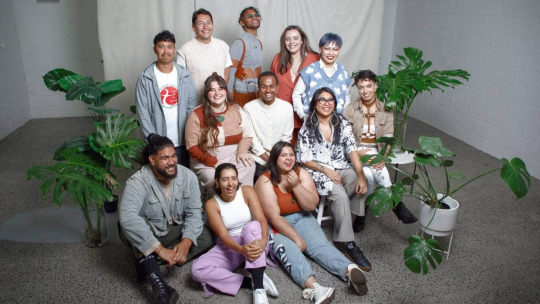
2 notes
·
View notes
Text
SOURCES:
Adegoke, Y. (2016, September 12). “Jesus Hasn’t Saved Us”: The Young Black Women Returning to Ancestral Religions. VICE - VICE; 5700553057239040. https://www.vice.com/en/article/bjgxx4/jesus-hasnt-saved-us-young-black-women-returning-ancestral-religion
Araoujo-Hawkins, D. (2021, January 6). Why some young Black Christians are practicing hoodoo-The Christian Century. The Christian Century; https://www.christiancentury.org/article/features/why-some-young-black-christians-are-practicing-hoodoo
Arora, A., & Elawar, M. (2015). Questioning God: A Spiritual Feminist Dialogue. CrossCurrents, 65(4), 457–468. https://doi-org.libproxy.uncg.edu/10.1111/cros.12155
Bardella, C. (2001). Queer Spirituality. Social Compass, 48(1), 117–138. https://doi.org/10.1177/003776801048001010
Boswell, M. (2019, September 14). Black Spirituality and Black Religion — Progressive Southern Theologians. Progressive Southern Theologians; Progressive Southern Theologians. https://progressivesoutherntheologians.com/news/2019/9/2/black-spirituality-and-black-religion
Burton, N. (2020, July 31). How some Black Americans are finding solace in African spirituality - Vox. Vox; Vox. https://www.vox.com/2020/7/31/21346686/orisha-yoruba-african-spirituality-covid
Carrette, J.R. & King R. (2005). Selling Spirituality: The Silent Takeover of Religion. Psychology Press.
Chan, D. (2017) A Critical Analysis of Systemic Influences on Spiritual Development for LGBTQ+ Youth. Journal of Child and Adolescent Counseling 3:3, pages 146-163.
Chan, C.D. & Daniels, P.F., (2019). Deconstructing and Reconstrcuting Queer Spirituality in the South: Intersectionality as a Means from the Micro to the Macro. In: Queering Spirituality and Community in the Deep South. IAP.
Conner, R. P., Sparks, D. H., & Sparks, M. (1997). Cassell’s Encyclopedia of Queer Myth, Symbol, and Spirit. Burns & Oates.
Crenshaw, K. (1989). Demarginalizing the Intersection of Race and Sex: A Black Feminist Critique of Antidiscrimination Doctrine, Feminist Theory, and Antiracist Politics. University of Chicago Legal Forum. 139-167.
Crumpton, T. (2019, September 11). Finding Healing in the Spiritual Practices of Our Ancestors. Shondaland; Shondaland. https://www.shondaland.com/live/body/a28989067/finding-healing-i-spiritual-practices-ancestors/
Dayan, J. (1998). Haiti, History, and the Gods. University of California Press.
Doyle, J. (2019, January 31). How Capitalism Turned Women Into Witches - In These Times. In These Times. https://inthesetimes.com/article/capitalism-witches-women-witch-hunting-sylvia-federici-caliba
Elizabeth, M. (2020, February 4). Representations of Black Witches in Popular Culture: Unpacking Distorted Discourse - Bubblegum Club. Bubblegum Club; https://bubblegumclub.co.za/discourse/representation-of-black-witches-in-popular-culture-unpacking-distorted-discourse/
Federici, S. (2018, October 1). Witches, Witch-Hunting, and Women. PM Press.
Fuller, R. C. (2001). “Exotic Messages, Familiar Themes”. Spiritual, but Not Religious: Understanding Unchurched America. Oxford University Press.
Lorber, J. (1994). Night to His Day: The Social Construction of Gender. In Paradoxes of Gender. Yale University Press.
Keneke, L. (2021, January 5). African spirituality offers Black believers ‘decolonized’ Christianity. Religion News Service; RNS.
Magdalene, M. (2017, September 29). The Intrinsic Queerness of Witchcraft, and Why It Matters. Outside the Charmed Circle; Patheos. https://www.patheos.com/blogs/mishamagdalene/2017/09/intrinsic-queerness-witchcraft-matters/
Marshall, B. (2019, October 23). Most Witches Are Women, Because Witch Hunts Were All about Persecuting the Powerless. The Conversation. https://theconversation.com/most-witches-are-women-because-witch-hunts-were-all-about-persecuting-the-powerless-125427
Martínez, N. (2019). Bruja Feminism & Cultural Production: Reclaiming the Witch in the Neoliberal Era. UC San Diego.
Merriam, S. B., Courtenay, B., & Baumgartner, L. (2003). On Becoming a Witch: Learning in a Marginalized Community of Practice. Adult Education Quarterly, 53(3), 170–188. https://doi.org/10.1177/0741713603053003003
Mies, M. & Shiva, V. (1993) Ecofeminsim. Zed Books Ltd.
Pearson, Joanne (2002). "The History and Development of Wicca and Paganism". In Joanne Pearson (ed.). Belief Beyond Boundaries: Wicca, Celtic Spirituality and the New Age. Aldershot: Ashgate. pp. 15–54. ISBN 9780754608202.
Prasad, P. (2019, August 2). Reimagining Witchcraft as a Refuge for Marginalized Groups. The Swaddle. The Swaddle. The Swaddle; https://theswaddle.com/feminism-witchcraft-refuge-marginalized-groups/
Rhee, J., & Subedi, B. (2014). Colonizing and Decolonizing Projects of Re/Covering Spirituality. Educational Studies, 50(4), 339–356. https://doi-org.libproxy.uncg.edu/10.1080/00131946.2014.924941
Rubin, G. (2002). "Studying Sexual Subcultures: the Ethnography of Gay Communities in Urban North America", in Ellen Lewin and William Leap, eds., Out in Theory: The Emergence of Lesbian and Gay Anthropology. Urbana: University of Illinois Press.
Whaley L. (2011) The Wise-Woman as Healer: Popular Medicine, Witchcraft and Magic. In: Women and the Practice of Medical Care in Early Modern Europe, 1400–1800. Palgrave Macmillan, London. https://doi.org/10.1057/9780230295179_10
Wicker, A. (2016, October 27). Witchcraft is the Perfect Religion for Liberal Millennials. Quartz. Quartz; Quartz.
https://qz.com/821298/witchcraft-is-the-perfect-religion-for-liberal-millennials/
Zwissler, L. (2018). "‘I am That Very Witch’: On The Witch, Feminism, and Not Surviving Patriarchy," Journal of Religion & Film, 22. (3).
https://digitalcommons.unomaha.edu/jrf/vol22/iss3/6
Zwissler, L. (2018). Religious, Feminist, Activist. U of Nebraska Press.
4 notes
·
View notes
Text
abolition work
hm i haven’t been posting here much because 1. Work Busy and 2. local movement spaces being largely on facebook, plus 3. disclosing local geographic location on here is still a bit Hhhh
but yeah i’m fairly open about being california bay area, and am working on plugging into local orgs and have been doing some rad captioning gigs for various places on both coasts, and getting to witness really rad conversations around defunding, dismantling, abolition, alternative structures, and communal healing
big plug for Kindred Collective and healing justice, their work on the medical industrial complex, and the National Queer and Trans Therapists of Color Network doing the deprogramming state collusion and relearning community care for social workers & healing practitioners
on surveillance, Hacking//Hustling is doing awesome work and talking about histories of police collaboration to criminalize public health surveillance, as is Red Canary Song,
highly recommend the Just Practice Collaborative’s mixtape on transformative justice coming out at the beginning of august
some great discussion by Mia Mingus and Mimi Kim along with Cat Brooks of Anti Police-Terror Project/APTP about the conflation of transformative justice, which seeks to transform systems that allowed/enabled harm to occur, with restorative justice, which seeks to restore the status quo that existed before the harm, and which the state is picking up on as a veneer of reparative work
and always always love for Critical Resistance and their amazing resources, and to the Abolition Journal Study Guide
for concrete steps to police abolition and things to call for from leaders, i recommend:
APTP’s & Justice Teams Network’s Black New Deal (here, there, and also here)
8toAbolition
MPD150 (who have a huge resource page!)
Critical Resistance’s demands
Movement for Black Lives/M4BL’s Interrupting Criminalization Toolkit
Repeal 50 (New York police misconduct protection laws)
other rad groups with resources include Survived & Punished, Community Justice Exchange, DecrimNow, FreeThemAll4PublicHealth, local Decarcerate ___ groups, Black Youth Project 100, INCITE!
other important names include Ruth Wilson Gilmore, Mariame Kaba, Kristina Agbebiyi, Kelly Hayes, Leah Lakshmi Piepzna-Samarasinha, Kimberle Crenshaw, Mari Matsuda, Anoop Naya, Audre Lorde, Assata Shakur, Cornel West, Angela Davis, bell hooks, James Baldwin, Alice Walker, Charlene Carruthers, Rachel Cargle
my favorite demands right now are:
freeze police hiring, at minimum
decriminalize public existence (loitering, disorderly conduct, being in a park after dark, eating or drinking in public/on transit, riding a bike on the sidewalk, sleeping in public, littering, urinating in public, etc)
- these shouldn’t be misdemeanors! there can be general public conduct agreements without criminalization, and with competent handling of homelessness
refuse to criminalize COVID-19 and decriminalize HIV/AIDS and end all health care information sharing with police
refuse to use facial recognition tech and end usage of “predictive” tech, license plate readers, etc (saves money too!)
fund public bathrooms and showers, including making existent facilities (eg YMCA, pools) available, and fund COVID sanitation staff
move duties out of the police:
- youth engagement
- community engagement
- re-entry from incarceration assistance
- parking enforcement
- traffic law enforcement
- health crisis response
- mental health crisis response
- homelessness response and services
- neighbor disputes
- trespassing enforcement
- domestic violence response
- transit fares and rules enforcement
--> create new divisions that are unarmed, are not trained&licensed to use force or institutionalize/incarcerate, and are non-coercive
--> start by creating a transition team to start doing this with a five-year plan, for example
*** in the meantime, disarm police responses to these!! ***
--> see CareNotCops.org
articles i’ve found valuable:
Confessions of a Former Bastard Cop on Medium
Who Should Pay for Police Misconduct on a legal blog
Domestic Violence & Defunding Police on Huffington Post
Tired Bad Cops First Look to Their Labor Unions on Washington Post
Who’s Afraid of Defunding the Police? on Salon
Defunding the Police: What Would It Mean for the U.S.? on NPR
Abolishing Policing Also Means Abolishing Family Regulation by Dorothy Roberts
The Color of Surveillance by Alvaro Bedeta (see also the conference’s materials)
article i need to take a moment to find a way around a paywall for lmao: On Trans Dissemblance: Or, Why Trans Studies Needs Black Feminism
documentaries/videos i recommend:
Black America Since MLK: And Still I Rise on PBS
books i’ve learned about and super want to read include:
Blackballed: The Black Vote and US Democracy
Medical Apartheid: The Dark History of Medical Experimentation from Colonial Times to the Present
How We Get Free: Black Feminism and the Combahee River Collective
Unapologetic: A Black, Queer, and Feminist Mandate for Radical Movements (by Charlene Carruthers with BYP100)
The Trials of Nina McCall: Sex, Surveillance, and the Decades-Long Government Plan to Imprison “Promiscuous” Women
Race After Technology: Abolitionist Tools for the New Jim Code
Dark Matters: On the Surveillance of Blackness (by Simone Brown)
Black Software: The Internet & Racial Justice, from the Afronet to Black Lives Matter
The Age of Surveillance Capitalism
Decarcerating Disability
No Tea, No Shade: New Writings in Black Queer Studies
Captive Genders: Trans Embodiment and the Prison Industrial Complex
Normal Life: Administrative Violence, Critical Trans Politics, and the Limits of Law (by Dean Spade)
Automating Inequality: How High-Tech Tools Profile, Police, and Punish the Poor
additional books i’m considering and have seen recommended:
Nobody: Casualties of America’s War on the Vulnerable, from Ferguson to Flint and Beyond
An Indigenous Peoples’ History of the United States
Sister Citizen: Shame, Stereotypes, and Black Women in America
When Affirmative Action Was White: An Untold History of Racial Inequality in 20th Century America
Me and White Supremacy
So You Want to Talk About Race
Why I’m No Longer Talking to White People About Race
Being White, Being Good: White Complicity, White Moral Responsibility, and Social Justice Pedagogy
The Condemnation of Blackness: Race, Crime, and the Making of Modern Urban America
Lies My Teacher Told Me: Everything Your American History Textbook Got Wrong
Evicted: Poverty and Profit in the American City
The Color of Law: A Forgotten History of How Our Government Segregated America
A People’s History of the United States
Black Feminist Thought: Knowledge, Consciousness, and the Politics of Empowerment (by Patricia Hill Collins)
Eloquent Rage (by Brittney Cooper)
Bad Feminist (by Roxane Gay)
Thick: And Other Essays
Real Life: A Novel
No Ashes in the Fire: Coming of Age Black and Free in America
Since I Laid My Burden Down
The Other Side of Paradise: A Memoir
The Summer We Got Free
Born a Crime: Stories from a South African Childhood (by Trevor Noah)
Just Mercy: A Story of Justice and Redemption
yeah!!
what/who are y’all reading/watching/listening to and finding helpful, or meaning to get around to?
8 notes
·
View notes